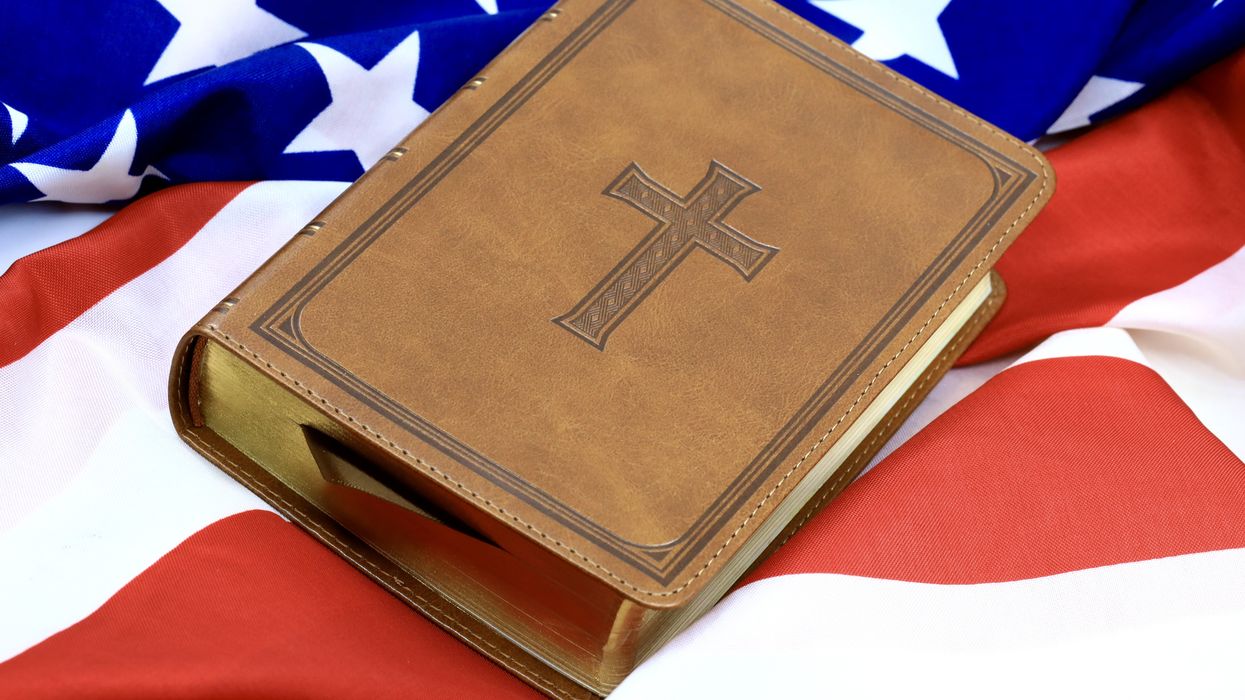Lawler is director of the Walker Leadership Institute at Eden Seminary. Johnson is a United Methodist pastor, the author of "Holding Up Your Corner: Talking About Race in Your Community" (Abingdon Press, 2017) and program director for the Bridge Alliance, which houses The Fulcrum.
The 2024 election season is underway, and the potential for increased polarization within our communities comes with it. As religious leaders, we hold a unique position of influence and trust. Our congregations and communities often look to us for guidance during times of uncertainty and conflict. However, the rapidly changing social and political landscape can leave even the most seasoned leaders unprepared.
That is why the Bridge Alliance, in collaboration with the Walker Leadership Institute at Eden Seminary, co-created the Praxis Cohort. This groundbreaking initiative supports and trains religious leaders in preparation for the challenging 2024 election season. The cohort recently held its inaugural virtual convening, drawing faith practitioners and others nationwide into a collaborative and educational forum.
Our vision is to create a network of faith leaders equipped with the knowledge, skills and spiritual grounding necessary to navigate the complexities of the modern political climate. Through this program, participants engage with theology, political science, conflict resolution and community organizing experts. The goal is not to dictate a political stance but to foster an environment where leaders can thoughtfully engage with contentious issues and guide their communities with compassion and wisdom.
The Jan. 27 convening of the cohort was a testament to the hunger for such learning and community. Faith practitioners from various denominations and backgrounds shared their experiences, concerns and hopes for the future. The event featured a series of workshops, keynotes, and discussions, all focusing on building resilience, fostering dialogue, contextualization, and understanding the intersection of faith and politics.
One of the highlights was the panel discussion on "A Spirituality to Sustain," where seasoned faith leaders shared their insights on maintaining faithfulness to spiritual precepts and practices amid differing political views within communities of faith. Another critical session was "Working in the Public Sphere," with the Rev. Ben Sander III, Denver’s chief equity officer, who shared theological imperatives and ethical considerations for faith-informed engagement in public space and discourse. The training provided was both practical and profound.
A vital training component emphasizes praxis – the intersection of theory and action. Therefore, participants are encouraged to implement what they learn within their communities through voter registration drives, hosting public forums, or simply fostering a more inclusive and understanding atmosphere within their congregations.
In the coming months, cohort participants will learn to harness the power of digital tools for community organizing, engage in role-playing exercises to prepare for difficult conversations, and develop strategies for self-care and spiritual resilience. The curriculum is dynamic and adapted to the needs of the cohort members and the unfolding political context.
The electoral season ahead is undoubtedly fraught with uncertainties, but the Praxis Cohort is an example of hope. Bridge Alliance and the Walker Leadership Institute believe investing in spiritual leaders is an investment towards healthy and more unified communities. As we expand the program and reach more faith leaders across the country, we are confident this will have a positive impact in the face of division and strife.
The 2024 election season may be contentious, but it also presents growth and transformation opportunities. Through the Praxis Cohort, we aim to empower faith leaders to be agents of peace and change, guiding their communities with a spirit of love and understanding that transcends political boundaries.
Interested faith leaders and social entrepreneurs desiring a cohort learning community are welcome to join Praxis. Together, with other diverse leaders committed to navigating the challenges ahead with courage and faith, you will not be alone in endeavoring to bring about a more just and representative democratic exercise this election season and beyond.



















Trump & Hegseth gave Mark Kelly a huge 2028 gift